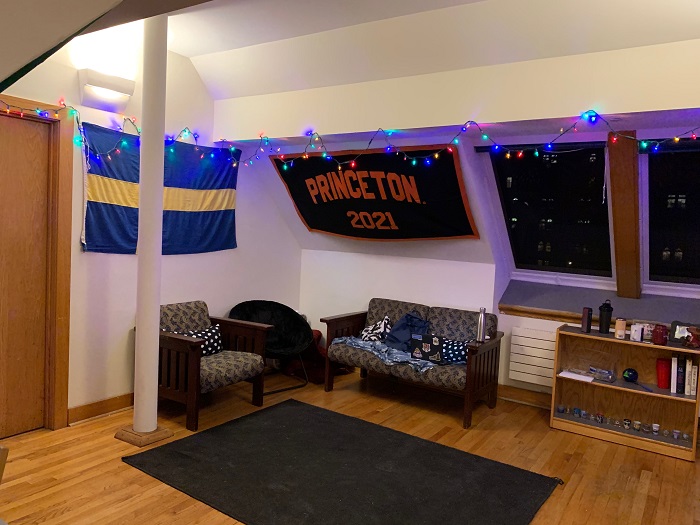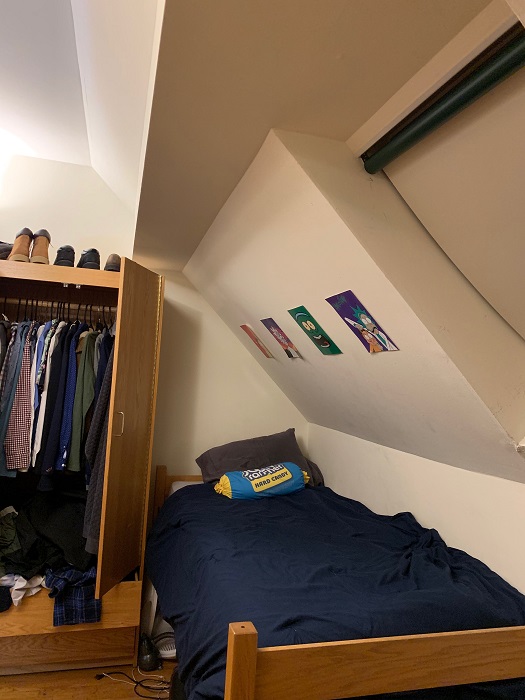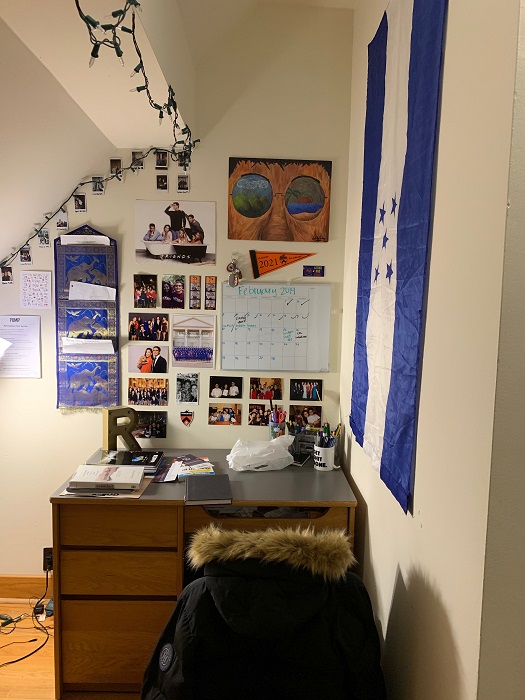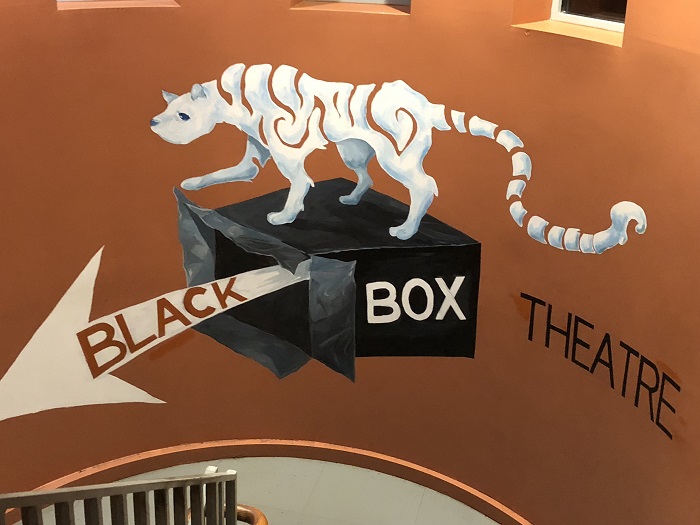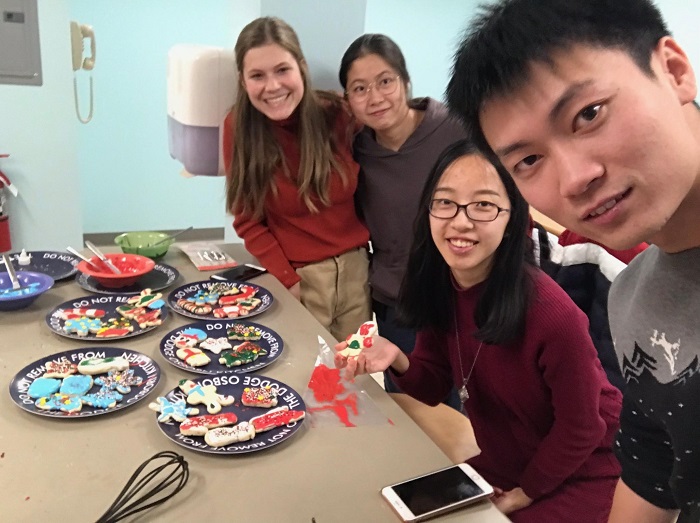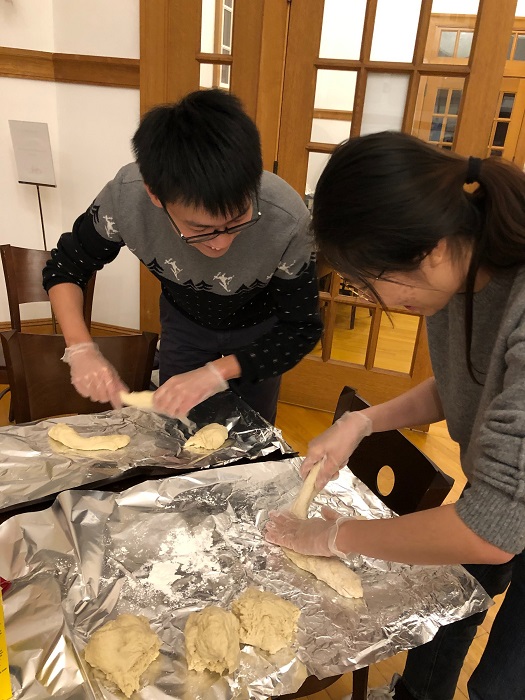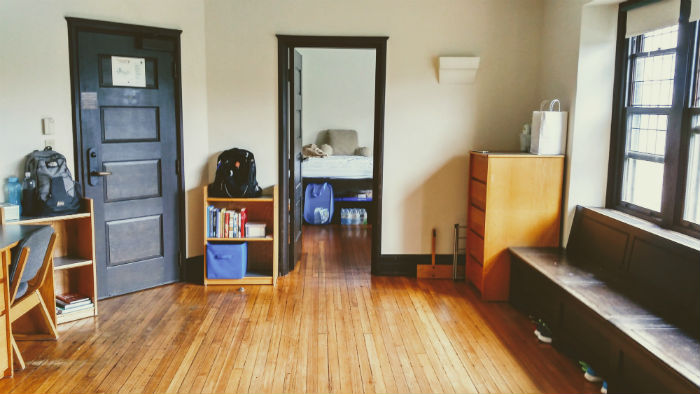It’s no secret that students at Princeton work hard in and out of the classroom. With skilled time-management, most Princetonians are able to avoid pulling all-nighters, but there’s likely not a student on campus who hasn’t had to stay awake late working on an assignment at least once. Some students tend to prefer studying alone when up late at night, but many of my friends and I take our few long evenings as an opportunity to enjoy each other’s company. Princeton kids tend to be ambitious and have the packed schedules to prove it. During the busiest weeks of the school year, (midterms and finals!) forming study groups can prove to be a much-needed social break.
Many students love to work with their friends later in the night at Murray-Dodge Café, a cozy spot on campus where students can pick up free fresh-baked cookies and tea. Most residential buildings on campus have elaborate basement areas with seating, tables, and study spaces, and it’s not uncommon to see entire first-year advisee groups crowded around tables in their residential halls as they all type away on their computers. Additionally, all residential college libraries are open 24-hours; seeing your friends in your college’s study space at odd hours goes a long way toward developing a college community.
Another element of the late-night study experience is grabbing a bite to eat with friends. Stopping by the train station Wawa, a convenience store, is a popular option for students in Forbes and Whitman colleges, and the hot food they serve late into the night is great study fuel. The Princeton University Store, or the “U-Store,” as it’s known to students, is extremely close to Rocky and Mathey colleges, as well as the bulk of upperclass student housing; it’s not uncommon to see a line stretching to the back of the store at 1 a.m. as hungry students stock up on snacks to get them down the home stretch. Students in Butler and Wilson colleges can stop by Studio '34, a convenience store-style late night snack stop known for its French bread pizzas and communal atmosphere.
Some of my fondest memories at school have been intermixed with the stress of a last-minute assignment or impending deadline. Friends and I have made little homes — replete with blankets, pillows and ample snacks — in the corners of library basements as we alternate between laughing at ourselves and actual productivity. I always tend to find that cookies in the eclectic varieties they make at Murray Dodge (peanut butter mint, M&M black tea or vegan lemon) make the prospect of going to bed at 2 a.m. a little less scary.
I’ll admit, I’m not much of a late-night studier. I usually try to be in bed by midnight — a goal that’s totally manageable for Princeton students! But time gets away from us all, and there are definitely days where I find myself traipsing to the U-Store in the wee hours or holing up in Mathey library. In a way, studying late at night with friends encapsulates what it’s like to be a student at Princeton. An interest in academic success, something nearly every student here shares, serves as a point of connection and an opportunity to forge the deeper bonds we’ll carry with us for the rest of our lives.








